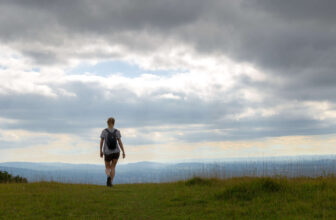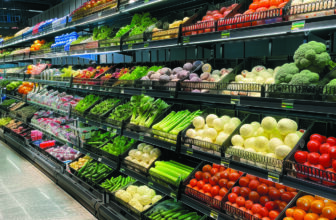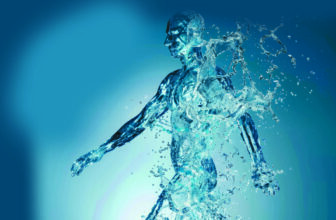
‘Exercise is just another word for movement.’
Q Should I count calories?
Evidence now shows that all calories are not equal. You could eat a piece of chocolate cake worth 200 calories or a handful of almonds worth 200 calories. If you are on a calorie controlled diet then you could have the cake and stay within your limit but in terms of nutritional value, the 2 options are completely different. The chocolate cake contains lots of carbohydrates, refined sugar, which may play havoc with your blood sugar levels. On the other hand almonds contain lots of protein, essential fats and lots of vitamins and minerals. From a health point of view, in order to provide your body with a nutritious snack eat the almonds.
Q I hate exercise but my GP has told me I must do some. Where do I start?
Exercise is just another word for movement. You can sit or you can move. Hoovering, mowing the lawn, going for a walk, taking the stairs instead of the lift, getting off the bus one stop earlier, dancing in the kitchen all count as exercise. Therefore you don’t necessarily need a gym membership. Exercise releases endorphins which make you feel good and may help to reduce high blood pressure, high cholesterol, stress and being overweight. Moving outside, especially when the sun shines, helps with your daily dose of Vitamin D as well. Start small and work consistently at it. Good luck!
Q Does drinking tea and coffee count towards my water intake each day?
No, unfortunately tea and coffee contain caffeine which dehydrate the body. Herbal teas, except green tea which contains caffeine, can be included in your 6-8 small glasses of water a day.
Q I spend too much money on buying lunch. Have you got some ideas for packed lunches?
The answer lies in planning and preparation. When you are cooking supper, double or triple the recipe so that you have some portions for later on in the week. Some meals make lovely lunches e.g roast vegetables can be mixed with salad ingredients for lunch the next day. Add in some protein eg hard boiled egg, sliced chicken (roast a chicken the night before and save some for lunches), nuts and seeds and drizzle with olive oil. Double up on a smoothie recipe at breakfast and take it in for lunch. Grilled salmon, new potatoes and peas for supper, can be used cold for lunch the next day.
Q Should I take supplements if I eat a healthy diet?
Supplements are effective for short term use as ideally we should be getting all our nutrients from what we eat. However, the soil has become depleted over the last 50 years and therefore the amounts of vitamins and minerals have also reduced. My advice is always to seek professional help when choosing supplements as taking too many can mean that one cancels another one out or interrupts a particular pathway in the body. Always choose good quality brands or ask a professional, as many supplements contain fillers. Always tell your GP if you are taking any supplements, as there can be interactions between certain medications and supplements.
Q What is the difference between a nutritional therapist and a dietitian?
Nutritional Therapists are trained to understand how nutrients, other foods and lifestyle factors influence the function of the body. They provide personalised advice that is layered upon simple guidelines using a range of tools to evaluate the health of a patient, then subsequently advising on lifestyle and dietary/nutritional practices to maintain good health, reduce the risk of disease and help support chronic conditions. This is all underpinned by the recognition that every person is unique.
Dieticians are qualified to assess, diagnose and treat dietary and nutritional problems at an individual and wider public-health level. Generally they work in the National Health Service to treat individuals with diagnosed medical conditions.
Q I suffer from bad hay fever. Do you have any suggestions to help ease my symptoms?
There are several things that can be done to help you. Make sure that you drink enough water every day as dehydration = inflammation = histamine production. Add fruit/herbs/cucumber to water to make flavoured water if you struggle to drink it. Aim for 6-8 glasses of water every day. As it takes 2 weeks to rehydrate the body make sure that you up your water intake before the hay fever season begins!
For a fully referenced pdf version of this article please email me. Any questions email me at: sue@thegenuinelivingcompany.com











